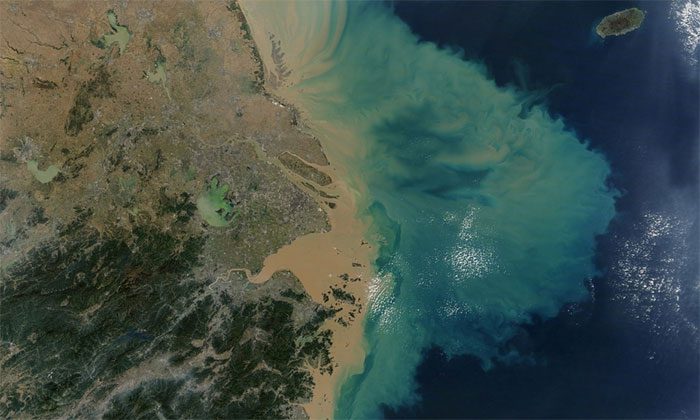According to AP, while tourists may be enjoying the warmth of summer in the Mediterranean Sea, climate scientists are warning of serious consequences for marine life as sea temperatures in the Mediterranean continue to rise.
From Barcelona to Tel Aviv, scientists suggest that Mediterranean coastal countries are experiencing unusual heatwaves, with temperatures increasing by 3 to 5 degrees Celsius compared to the average for this time of year. Current temperatures frequently exceed 30 degrees Celsius.
Europe and other Mediterranean countries are currently facing prolonged heatwaves, but the warming sea temperatures are also a new warning sign due to the impacts of climate change.
The phenomenon of “ocean warming” occurs due to ocean currents creating warm water regions. As atmospheric temperatures rise, sea temperatures also increase. Similar to heatwaves on land, “ocean warming” events are becoming longer, more frequent, and more severe due to climate change and human activities.

The phenomenon of “ocean warming” is caused by ocean currents creating warm water regions. (Illustrative image).
Mr. Joaquim Garrabou, a researcher at the Institute of Marine Science in Barcelona, stated that the situation is very concerning. We need to urgently act to address climate issues as soon as possible. Mr. Garrabou is a member of the research team studying prolonged heatwaves in the Mediterranean Sea from 2015 to 2019. The report also indicated that these phenomena could lead to “mass deaths” of marine species.
Serious threats to marine species
A study published in the journal Global Change Biology revealed that approximately 50 marine species, including corals, sponges, and seaweeds, are being affected by climate change along thousands of kilometers of the Mediterranean coastline. The situation in the eastern Mediterranean basin is also assessed to be very serious.
Mr. Gil Rilov, a marine biologist at the Geological and Marine Research Institute of Israel and one of the co-authors of the paper, noted that the average sea temperature in summer remains stable at 31 degrees Celsius.
“Warming seas will put marine life in danger,” he said.
Mr. Rilov and his colleagues are witnessing a decline in marine biodiversity in the western Mediterranean, with Greece, Italy, and Spain being the countries most affected in the coming years. Mr. Garrabou pointed out that these seas have helped balance our Earth by absorbing 90% of the planet’s excess heat and 30% of carbon dioxide emissions released into the atmosphere from coal, oil, and gas production.
For a long time, the oceans have been healthy. However, currently, human activities are pushing the oceans into an unhealthy, even dysfunctional state. Ocean scientists are collaborating with authorities to ensure that 30% of marine areas are protected from human activities such as fishing, to allow for the recovery and growth of marine life.
About 8% of the Mediterranean Sea is currently protected. However, researchers Garrabou and Rilov also believe that policymakers have largely failed to anticipate the warming of the Mediterranean Sea and its related impacts.
Recent prolonged heatwaves over a certain period have led to a phenomenon of no rain and little wind. Heatwaves on land have caused ocean temperatures to rise, and both trends influence each other in a vicious cycle, contributing to global climate warming. Prolonged heatwaves on land have become common in many countries around the Mediterranean, leading to wildfires, droughts, crop failures, and extreme temperatures.
Scientists warn that prolonged heatwaves at sea could have serious consequences for Mediterranean bordering countries and the over 500 million people living there if early measures are not taken. Depleted marine life and tourism will be affected as storms become more frequent.
Although the Mediterranean Sea occupies only about 1% of the global ocean surface, it is one of the oceans with the highest marine biodiversity, accounting for 4% to 18% of known marine species worldwide. These species, which were once key to maintaining the functioning and diversity of marine habitats, are currently facing severe impacts. Species like Posidonia seagrass can absorb large amounts of carbon dioxide and provide shelter for marine life, while coral reefs serve as habitats for wildlife, both of which are endangered by climate change impacts.
Heatwaves have affected over 90% of the Mediterranean Sea surface. According to the latest reports, sea surface temperatures in the Mediterranean have increased by 0.4 degrees Celsius per decade from 1982 to 2018. Experts believe that even a slight increase in temperature can affect the health of the entire ocean.


















































